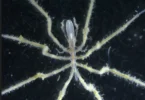Bees are more than just honey producers—they are the foundation of our food supply and ecosystems. Without them, countless plants would fail to reproduce, threatening the food chain and biodiversity.
Bees pollinate over 75% of global food crops, from fruits and vegetables to coffee and nuts. Despite their vital role, bee populations are declining at alarming rates due to habitat loss, pesticides, and climate change.
Understanding why bees are essential to our survival and taking action to protect them is not just about saving insects—it’s about safeguarding our planet’s future.
Pollination: The Lifeline of Our Food Supply

Pollination is the process that allows plants to reproduce, and bees are the most effective pollinators on the planet.
How Pollination Works:
- Bees visit flowers to collect nectar and pollen for food.
- Pollen sticks to their bodies and is transferred to other flowers.
- This process fertilizes plants, allowing them to produce fruits, seeds, and vegetables.
Crops That Rely on Bee Pollination:
- Fruits like apples, berries, and melons
- Vegetables like cucumbers, squash, and broccoli
- Nuts like almonds and cashews
- Beverages like coffee and cocoa
Without bees, nearly one-third of the food we eat would vanish from store shelves.
Interestingly, bees aren’t the only pollinators that influence our food. How Birds and Bees Make Your Coffee Taste Amazing explains how both bees and birds contribute to the flavor and quality of your morning brew.
Economic and Environmental Impact of Bees
Bees don’t just keep ecosystems healthy—they also contribute to the global economy in a big way.
Economic Value
Pollinators like bees contribute over $235 billion to global agriculture annually. In the United States alone, honeybees are responsible for pollinating crops worth over $15 billion each year. Almond farmers in California even rent bee hives to pollinate their orchards.
Environmental Impact
- Bees promote biodiversity by supporting wild plants.
- Pollinated plants provide food and shelter for birds, insects, and mammals.
- A healthy bee population ensures a balanced ecosystem and thriving wildlife.
Why Bees Are Dying—and Why It Matters
Despite their importance, bee populations are plummeting. The decline is driven by a combination of human activity and environmental changes.
1. Pesticides and Herbicides
- Neonicotinoids and other chemicals disrupt bees’ ability to navigate and find food.
- Herbicides eliminate wildflowers, reducing bees’ food sources.
2. Habitat Loss
- Urbanization and large-scale farming destroy natural bee habitats.
- The reduction of wild meadows and hedgerows leaves bees with fewer places to nest and forage.
3. Climate Change
- Warmer temperatures and changing weather patterns affect the availability of flowering plants.
- Unpredictable seasons disrupt the natural feeding cycles of bees.
Bee colony collapse disorder (CCD) has already wiped out thousands of hives worldwide. If bee populations continue to decline, food production and ecosystems could face irreversible damage.
How to Help Protect Bees
The good news is that we can all take action to help save bees and protect our ecosystems.
1. Plant Bee-Friendly Flowers
Growing a diverse range of flowers provides food and shelter for bees. Try planting:
- Lavender
- Sunflowers
- Wildflowers
- Bee balm
Plant flowers that bloom at different times of the year to keep food sources available.
2. Avoid Harmful Pesticides
- Choose organic gardening methods when possible.
- If pesticides are necessary, apply them in the evening when bees are less active.
3. Create Safe Habitats
- Build bee hotels using bamboo or hollow reeds.
- Allow part of your yard to grow wild to give bees a safe place to nest.
4. Support Local Beekeepers
Buying local honey supports small-scale beekeepers and promotes bee conservation.
5. Educate and Advocate
Spread awareness about the importance of bees and support environmental policies that protect pollinators.
Why Protecting Bees Matters
Protecting bees isn’t just about saving a species—it’s about securing our food supply and preserving the delicate balance of our ecosystems. Bees are essential to plant reproduction, biodiversity, and food production. Without them, global food scarcity would rise, ecosystems would collapse, and the survival of countless species (including humans) would be at risk.
According to the National Wildlife Federation, the loss of bees would have devastating consequences on food production and ecosystem health.
Every flower planted, pesticide avoided, and hive protected brings us one step closer to saving the bees—and securing our future.








